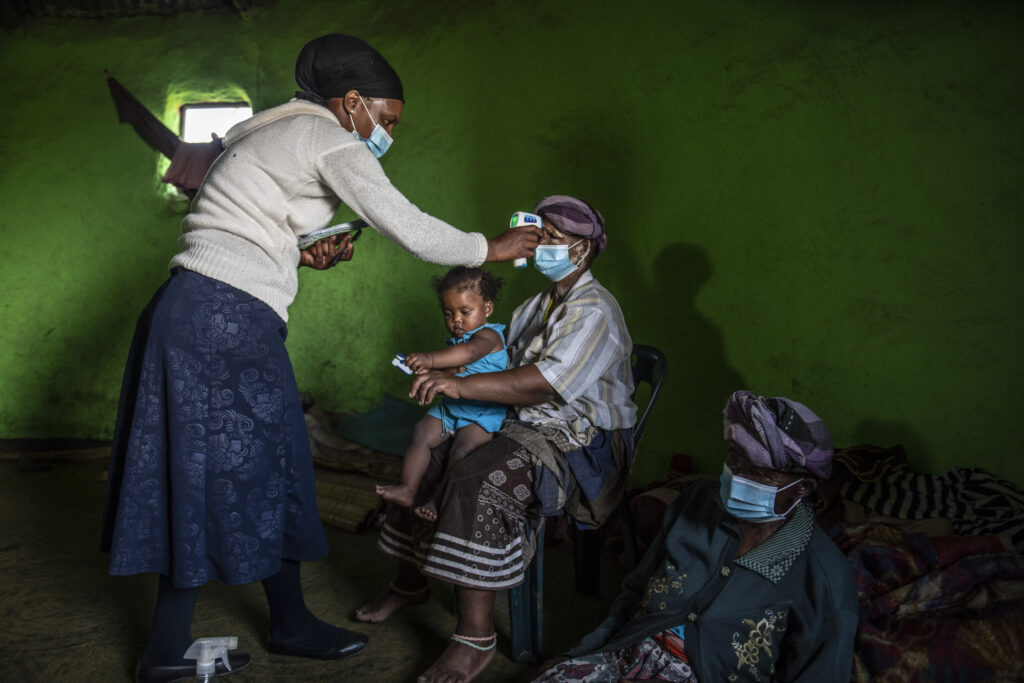- The appointments for the heads of two more of the five chief directorates of the health department’s National Health Insurance (NHI) branch were approved on Monday. These two positions will oversee user and service provider management and healthcare benefits and provider payment design.
- In June, the National Assembly in parliament approved the NHI Bill. It is currently being debated by the National Council of Provinces.
- In the first year after the Bill becomes law, if approved, nothing much will change. Over the next five years thereafter, though, some private medical schemes will likely disappear and the remaining ones could all offer similar benefits, says the health department.
- But it won’t come without legal battles and much more input from health workers who have to make the fund work, experts say.
- In the latest episode of Bhekisisa’s monthly TV show, Health Beat, Mia Malan sat down with the health department’s Nicholas Crisp and Section27’s Sasha Stevenson to get some answers about how the NHI will work.
The appointments for the heads of two more of the five chief directorates of the health department’s National Health Insurance (NHI) branch were approved on Monday, says NHI deputy director general, Nicholas Crisp. These two positions will oversee user and service provider management and healthcare benefits and provider payment design.
The other three chief directorates, of which two already have heads, are: health product procurement; digital systems; and risk identification and fraud prevention — only the chief directorate for fraud prevention still needs a chief director.
Both the new staff who were appointed this week will report for work in August or September. The names of the appointees have not yet been released.
The latest news comes after the treasury approved money to appoint 44 people in the NHI branch late last year, which will bring the total staff tally for the core office running the branch to around 100 employees.
The National Assembly gave the go-ahead for the much debated Bill in June, after many rounds of public input. But other than the timeframes for implementing the fund being pushed out (with the first phase now to run from this year to 2026, instead of from 2017 to 2022 as was planned before) and the minister’s decision powers being reined in, little has changed from the version previously tabled.
Under the NHI, private medical schemes will essentially cease to exist — at least as we know them now.
So, what changes in their healthcare can South Africans expect to see happening in the first year after the Bill’s become law (if approved by the National Council of Provinces)?
‘‘Nothing,” Crisp said in an interview on Bhekisisa’s monthly TV programme, Health Beat, in June. Full implementation, he says “will take decades”.
But within the first five years after the Bill’s become an Act, there will likely be fewer medical schemes in the country and their benefit packages will look more or less the same, which will set the groundwork for the basic package the NHI will offer, says Crisp.
Sasha Stevenson, head of health at Section27, a public interest law centre, says the fund, which will essentially be a system of contracting, will be “far from simple” — and legal opposition should be expected.
Mia Malan spoke to these experts to find out what’s next now that the Bill is ready to go to the National Council of Provinces, the next step in the law-making process, what it will mean for health workers having to put the plan into action, and what South Africans should — and should not — be worried about.
[WATCH] Why the NHI wants your medical aid premium
Mia Malan (MM): Activists say that some [cancer] patients die while they wait for treatment [in public hospitals]. If this were your brother or sister, wouldn’t you be worried?
Nicholas Crisp (NC): We are worried for every patient. Whether it’s a family member or a member of the public, [poor health service] is not acceptable. That’s why we need to reform the way we deliver healthcare. We have many resources in this country, but they’re not accessible to the majority of people. The question we’re trying to address with national health insurance [NHI] is how we achieve universal health coverage, [meaning] all of us get the healthcare that we need, when we need [it], where we need it — without incurring financial hardship. We need to design a system that’s not a duplicate of the two-tier system we have now, [one] that enables us all to get healthcare and not have to wait so long.
MM: Trust in the government is at an all-time low, and during the COVID pandemic your department had a huge corruption scandal with the Digital Vibes communications contract. Why should we trust you now with an even bigger budget?

NC: Corruption is never acceptable. Most of the people who work in the health department don’t behave in that way; the handful of people who do, are doing us a disservice as a nation. When we design the [NHI] system, we must make sure that there are checks and balances in place so that these kinds of things [such as corruption] don’t happen.
MM: What kind of systems will you have in place?
NC: We need to identify the risks to try and design them out [of the system]. Where we can’t [do that], we must flag them and then address them. We can minimise the risks and the amount of corruption and fraud by simplifying the system. That’s why a simplified, single model is preferable to the complicated health system we have now.
MM: Civil society organisations [such as Section27] have been monitoring the NHI for a long time. Do you think a simplified system will protect us against corruption?
Sasha Stevenson (SS): [Although] it’s possibly more simple than the current two-tier system, the NHI is far from simple. It’s a system of contracting that pools all of the funds to, theoretically, get the best deal. But contracting comes with a lot of risk. [We] can’t just deal with corruption when it happens; [we should] prevent it from happening in the first place.
MM: Is there enough built into the Bill to ensure that contracts are transparent?
SS: There isn’t a lot of detail in the Bill on what those [checks and balances] will look like, [other than] advisory committees that are meant to advise the fund on what kinds of benefits should be allowed, and what payment mechanisms there should be. Those structures don’t include health service users and they don’t include civil society.
MM: Have health workers been consulted enough to understand what the NHI will look like?
SS: There’s a lot of frustration among healthcare workers as they don’t feel consulted. They’re the people who are on the ground. In South Africa we have a habit of creating policy and then expecting it to be implemented without hearing from the people who are doing the work. Theories on changing health systems are quite clear: nothing can just be implemented from the top and then it works. We need a process where we test things out and the implementers give feedback to policymakers. That’s going to be key in this next stage, because we want change to actually happen.
MM: How will the government give health workers a voice?
NC: I don’t disagree that we should consult people on how we do it, but everybody can’t be talking to the national department. [Health workers should] be talking to the provincial departments. [We should] be talking to the people in hospitals, in clinics, GPs in their practices. [But] my biggest concern is the public. Because I haven’t found one person who actually understands their medical aid now or how the public sector does — or doesn’t — accommodate them.
MM: In its current form, the NHI Bill says medical aids, as they are today, will effectively be banned. Is this fair?
SS: What we need to focus on is that we have a system that caters to different people in a dramatically different way. The Bill says medical aid will only be able to cover complementary services [meaning] those that aren’t covered by the NHI. It’s difficult to know what the complaints will be, because we don’t know what the fund is going to cover and we don’t know what those complementary services will be.
[WATCH] Health Beat #9 | Cancer and the NHI: Will patients see better treatment?
MM: If the NHI Bill becomes law tomorrow, what should people expect in the first year?
NC: You won’t feel anything in the first year, nothing. [The system] won’t change in a short time; it will take a couple of years before we see the first steps. Full implementation, which is what people who are in the know are unhappy about in section 33, will take decades. [Section 33 of the Bill outlines what the role of medical schemes will be once the NHI is running.]
MM: When will medical aids disappear?
NC: [Having] 76 medical schemes is not sustainable. There are big ones, and some are very small, with small risk pools. I see a realignment of medical schemes, where we end up with fewer schemes and which offer fewer packages (so, less complicated choices) and one compulsory package, in which everybody knows what they’re getting for a set price, as negotiated and fixed between the state, the Council for Medical Schemes, the Competition Commission and the medical aids. That’s what I’d hope to see in the next five years.
MM: Critics of the NHI say it won’t bring quality healthcare, just bad healthcare that’s free. Is that a fair point?
SS: The big challenge for the department in the next decade will be to make sure public health facilities [offer good enough quality so that they] can be contracted by the fund, and it’s not private health facilities only that are able to meet the norms and standards.
MM: There’s been legal threats to prevent the NHI from happening. Could such cases be successful?
SS: There’s a significant chance that cases will be brought [to the court], which will hold up parts of the NHI’s roll-out.















